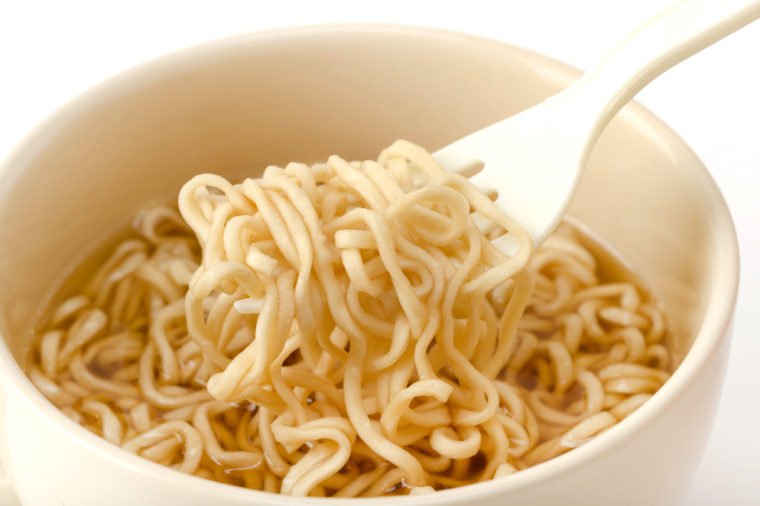When you ponder the health content of ramen noodles, buzz words like “sodium” and “refined carbohydrates” probably come to mind. But do you know how those things actually affect your body?
It’s no secret that a package of instant ramen noodles is a guilty-pleasure meal for many. Whether it’s an absolute last-resort option when there’s nothing else in your pantry, or you find yourself cooking it up every time you need a quick meal, you’ve probably succumbed to the salty, slurpy goodness on more than one occasion. And while you know it’s far from a health food, do you know what it actually does to your body?
There are a couple different things that make ramen an unhealthy choice. There’s not much to these provision packets besides salt and carbohydrates. While those certainly get thrown around quite a bit as “bad-for-you” buzzwords, you may not know how they actually harm your body. Firstly, there’s the fact that most instant ramen servings contain over 1100 milligrams of sodium—that’s approaching half of the maximum you should eat per day. When you ingest that much sodium in a single sitting, your body overcompensates by retaining more water. This can cause temporary water weight gain, leaving you feeling bloated and lethargic.
But while you may feel bloated, chances are you won’t feel full. Since the ramen contains lots of refined carbohydrates with virtually no protein or fiber, it’s essentially the very definition of empty calories. And you’ve probably heard the song-and-dance about refined carbs; eating too much can lead your blood sugar to spike and then dip, leaving you hungry and ready to eat again—which leads to weight gain. Find out what happens to your body right after drinking soda, too.
And, perhaps most disconcerting of all, this quick-and-easy meal may stay with you much longer than you realize. Massachusetts General Hospital’s Dr. Braden Kuo captured visual evidence of this in 2012 when he used a pill-sized camera to record the digestive tracts of volunteers who ate processed ramen noodles as well as fresh ones. He published his results in a literally stomach-churning video. Dr. Kuo was able to show that, after two hours when the fresh noodles were long gone, the ramen noodles were still almost entirely intact in the intestines. While it’s not clear what, if any, downside there is to the findings, the results are startling.
Doctors do know that years of eating the instant packets are linked to poor health. Another study, this one by the Harvard School of Public Health, assessed the long-term consequences of ramen consumption in South Korea, where it’s a major meal staple. They found that subjects, women in particular, who ate instant noodles at least twice a week had a 68 percent higher risk of metabolic syndrome—a combination of symptoms that raise the risk of diabetes and heart disease—than subjects who ate a more consistently natural diet.
In short, eating ramen once in a while won’t wreck your health—as is true with most processed foods. But it’s not something you should make a habit of—for your stomach and heart’s sake. Next, find out the 50 foods nutritionists never, ever eat.

